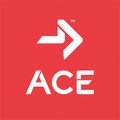Dr. Lynn Herrmann earned her PhD in community health – health behavior with a kinesiology focus. She also has an MPH with a health promotion concentration. As a professor at Northern Illinois University, she conducts research on physical-activity promotion and teaches health promotion courses at the graduate and undergraduate levels. Dr. Herrmann is an American Council on Exercise Certified Group Fitness Instructor, Health Coach, Personal Trainer, and Medical Exercise Specialist, as well as a Behavior Change Specialist. She also teaches an ACE continuing education course entitled Practical Public Health for Exercise Professionals and Health Coaches.
Please tell us a bit about the work that you do as a researcher and professor of public health.
I teach public health courses, specifically health promotion courses, at both the graduate and undergraduate levels at Northern Illinois University, just west of Chicago. My research relates to physical-activity promotion via different perspectives, such as social media influences, psycho-social variables and movement as a means to be creative. I am obviously into fitness, but my passion is teaching group exercises classes. There is such a sense of community and we always have fun! I am also involved in my community as a board member of a local organization that promotes food security and locally grown produce.
How would you define “public health” and how does that definition overlap with the work that health coaches and exercise professionals do every day?
Public health is promoting and protecting health through education, communication and disease prevention so everyone can live life to their fullest potential. This definition 100% overlaps with the work of health coaches and exercise professionals. The only difference is the approach on how we get there. Public health focuses on working with groups of people, communities, states, and even the entire nation and world. Health coaches and exercise professionals tend to focus on individuals or small groups. There are pros and cons with the different approaches, but it is important to remember we are all working toward the same goal of improving the health of everyone.
You describe yourself as having one foot in the public health space and one foot in the fitness industry. How do you think your dual role as a professor/researcher and health coach/exercise professional benefits the work that you do? How does each role inform the other?
The roles in public health and as an exercise professional and health coach definitely overlap! Being an exercise professional and health coach allows me the opportunity to see the unique daily experiences of individuals, but my work in public health constantly reminds me that change does not occur only at the individual level. For example, we need neighborhoods that are not only walkable, but where people feel safe walking. We need grocery stores that are accessible and also provide produce and other healthy food options. These are changes that need to occur at higher levels than the individual, such as city council meetings. However, exercise professionals and health coaches can guide individuals to learn about and understand their own behaviors, which is also critical in behavior change. I really see exercise professionals and health coaches as public health professionals, even if they do not know it.
What do you think the health and fitness industry could do better in terms of supporting public health initiatives—and vice versa? How can we all do a better job of connecting and supporting each other’s work?
One look at Healthy People 2030, the nation’s health goals that are set every 10 years, and it is clear that public health and the health and fitness industry need each other. So many of these goals require the expertise of exercise professionals and health coaches. We are the ones interacting with the public directly and that’s where part of the health impact needs to be made.
How can ACE pros find out about public health initiatives in their area? How can they get more involved?
In the United States, every state has a state health department. That is a good place to learn what is going on broadly where you live, such as certain health initiatives. You can also check out your county health department, which is more localized to your county’s health concerns. There are also many non-profit organizations locally, state-wide and at the national level doing public health work. Even local hospitals engage in public health, through community outreach and education, as well as prevention efforts.
I highly encourage all exercise professionals and health coaches to become involved in making changes in their own communities and the communities where they work. Another way to do this is to get involved with advocating for health policies at the local, state and federal government levels. Systemic change is where we will see bigger health improvements, but this systemic change requires the work of many individuals. Remember, you are an expert in the field and know firsthand the challenges clients and participants face. Your input is needed!
What is the key takeaway that you’d like health coaches and exercise professionals to understand about public health? Is there a knowledge gap that you believe needs to be bridged?
Public health is all around us. We are so used to the fact that we have access to clean water, laws that prevent us from being exposed to secondhand smoke indoors, and food that is kept at certain temperatures to prevent us from getting food-borne illness. We forget to value public health every day. Public health is like the refrigerator in your house. It runs day in and day out, but we do not realize how much we value it until it breaks down. All that to say, we need basic public health in our lives not only to survive, but also so we can thrive.
If you’re interested in learning more from Dr. Lynn Herrmann, consider her continuing education course: Practical Public Health for Exercise Professionals and Health Coaches (worth 0.2 ACE CECs). This course will help you understand the relationship between the work of exercise professionals and health coaches and the role of public health, as well as enable you to apply public health concepts to the work you do every day.




 by
by 







 by
by